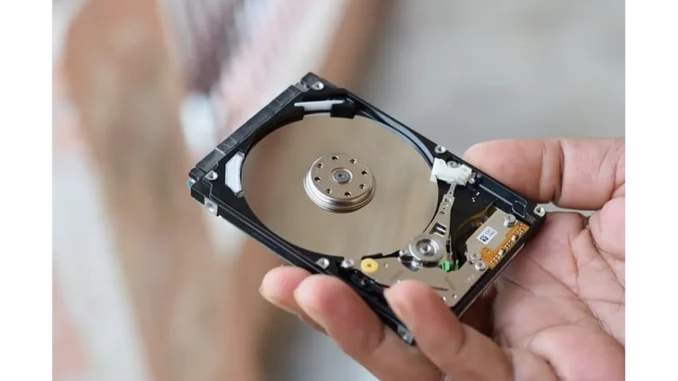
Summary
2024 NAS Storage Solutions: Navigating the Hard Drive Market
In the rapidly evolving digital world, the necessity for robust data storage solutions has never been more pronounced. Network Attached Storage (NAS) systems have become a cornerstone for individuals and businesses seeking efficient data management. The heart of any NAS setup lies in the hard drives that empower it. This article examines the leading hard drive options for NAS systems in 2024, highlighting the critical balance between capacity, performance, and cost. Industry experts weigh in on what makes a hard drive suitable for NAS environments, offering guidance for optimising data storage strategies.
Main Article
Understanding Storage Requirements
Before selecting a NAS hard drive, it’s imperative to assess your specific storage needs. As of late 2023, hard drives offer capacities up to 22TB, with projections for even larger sizes aimed at data centres. Understanding your data volume and planning for future expansion is crucial. Performance requirements also play a significant role; tasks like video editing or running virtual machines demand faster drives. Balancing these needs against budget constraints is vital, as high-capacity drives often carry a premium price. Additionally, redundancy and data protection strategies, such as RAID configurations, are essential for safeguarding data integrity against drive failures.
Exploring Drive Technologies
The market provides a diverse array of hard drive technologies, each with unique advantages:
Traditional Hard Disk Drives (HDDs): Offering affordability and high capacities, HDDs are a popular choice for NAS systems. Key features include RPM, where higher values improve performance but may increase noise and heat, and cache size, which affects data retrieval speeds. The workload rating (TBW) is crucial for gauging a drive’s durability, indicating the volume of data it can handle annually.
Solid State Drives (SSDs): Once seen as a high-cost option, SSDs are gaining traction due to price reductions. Their speed and reliability make them appealing for NAS applications. Factors like endurance (TBW) and connection interface—SATA versus NVMe—are important considerations, with NVMe offering superior performance in compatible systems.
Hybrid Drives (SSHDs): Combining HDD and SSD technologies, hybrid drives offer a compromise on speed and capacity, catering to users seeking a balance between traditional HDDs and SSDs.
Leading Hard Drive Recommendations for 2024
With a clear understanding of your needs and the available technologies, consider these top hard drive recommendations:
Seagate Ironwolf and Ironwolf Pro: Engineered specifically for NAS environments, the Seagate Ironwolf series caters to various needs. The Pro series is particularly suited for larger setups, providing higher workload ratings and extended warranties. “The Ironwolf Pro is designed for resilience and performance, making it ideal for demanding applications,” stated Richard Connors, Seagate’s Product Manager.
Western Digital Red and Red Plus: A stalwart in the NAS market, the WD Red series is renowned for its dependability and affordability. The Red Plus variant utilises CMR technology for enhanced performance in certain scenarios. However, some models with SMR technology might experience performance issues in write-heavy applications.
Toshiba N300: For users seeking a harmonious blend of performance and price, the Toshiba N300 series offers 7200RPM speeds and up to 18TB capacity, making them apt for more demanding NAS setups.
Enterprise-Class Options: For larger-scale NAS requirements, enterprise-class drives like the Seagate EXOS and WD Ultrastar series deliver unparalleled reliability and performance, tailored to data centre and hyperscale environments.
The SSD vs. HDD Debate
As SSD prices decrease, their adoption in NAS systems grows. While SSDs provide superior speed and reliability, their benefits might not be fully realised over standard network connections. For users prioritising speed, particularly in high read/write demand environments, SSDs present a worthwhile investment. Conversely, those focusing on maximising storage at a lower cost might find traditional HDDs more appealing.
Detailed Analysis
Selecting an appropriate hard drive for a NAS system is an intricate process influenced by a variety of factors including technological advancements, market trends, and individual use-case scenarios. The ongoing evolution in data storage technologies underscores the necessity for consumers to stay informed. As drives increase in capacity and speed, understanding the trade-offs between different technologies becomes vital. The growing interest in SSDs reflects broader economic trends towards more efficient, faster data solutions, while the sustained relevance of HDDs indicates a continued demand for cost-effective storage options.
Further Development
As the data storage landscape continues to evolve, further developments in drive technology and market dynamics are anticipated. The introduction of higher-capacity drives and advancements in SSD technology may shift consumer preferences. Industry observers suggest keeping an eye on emerging trends in data protection and redundancy solutions. For those invested in NAS systems, staying informed about these changes will be crucial. Readers are encouraged to follow ongoing coverage as the story of data storage technology unfolds throughout 2024.

